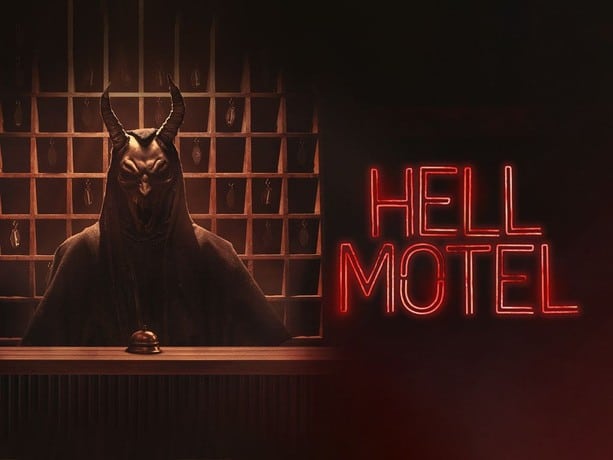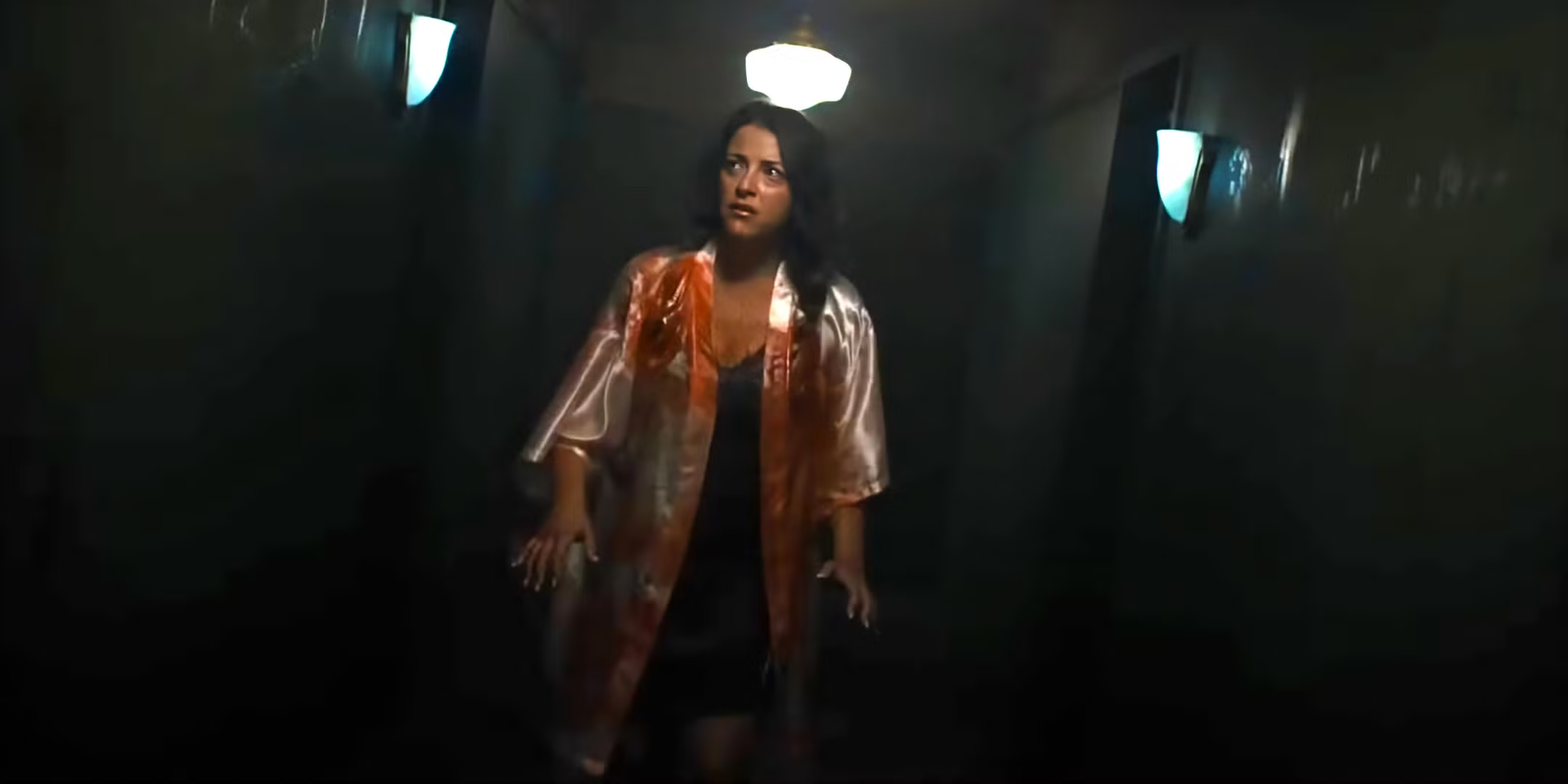The modern True Crime landscape is a complicated one. Since the premiere of the Serial podcast in 2014 and Netflix’s 2015 docuseries Making a Murderer, the genre has skyrocketed in popularity. Now, we have podcasts where the hosts open a bottle of wine and discuss America’s most notorious serial killers standing alongside investigative journalism projects that focus on the victims and how institutional incompetence compromises justice. Some have resulted in arrests and convictions years after the fact. A lot of questions get dragged in given the wide berth of perspectives, but most will inevitably come back to one of the most basic: why do people keep coming back to true crime?
Shudder’s latest horror series Hell Hotel explores this very question, and it does a great job at poking holes into the reasons why so many of us prefer spending time in the dark world of death and murder. Created by Slasher co-creators Aaron Martin and Ian Carpenter, the series focuses on a true crime enthusiast’s dream: a hotel where gruesome slayings took place.
It opens in the not-too-distant past. A newlywed couple finds itself in the crosshairs of a pair of satanist killers hoping to resurrect Baphomet through blood sacrifices. They’re murdered in one of the rooms of the newly opened Cold River Hotel. From there we jump to the present, where a pair of entrepreneurs are reopening the hotel for an event in which a group of true crime influencers and obsessives are invited to stay overnight at the place where the satanists carried out the murders. The killings remain unsolved.
The series approaches the guests as easy-to-recognize archetypes. There’s a chef that makes food look like severed body parts (Eric McCormack), a tense true crime academic (Jim Watson), a nervous novelist and mass murder survivor (Atticus Mitchel), a hybristophiliac that hopes to add another serial killer to her body count (Genevieve DeGraves), a self-serious visual artist (Emmanuel Kabongo), an actress that finds it hard to escape her ‘slasher murder victim’ fame (Paula Brancati), and a medium that leans into the theatrical (Shaun Benson).
About halfway into the first episode, two unwelcome guests (played by Yanna McIntosh and Gray Powell) reach the hotel asking for a spot to park their RV so they can hold out until the rainstorm that’s been hammering down since everyone arrived stops. Shortly after, the masked killer takes his or her first victim. What follows is a Clue-like mystery as to who the killer is.
Because there are so many distinct archetypes in play, Hell Hotel doesn’t necessarily settle on a main character, or someone you can clearly identify as the final girl (or final boy). The decision helps keep things playful. Each character gets to put their true crime sensibilities on full display. The hybristophiliac (a person that exhibits sexual attraction to criminals, especially violent ones), for instance, is always eager to indulge crudeness when expressing her lust for serial killers. She points to a kind of fan that holds a problematic relationship with True Crime, the kind that sees murderers as objects of pleasure to obsess over.
This type of fan exists, and they’ve been known to send nude pictures and sexually-charged letters to violent inmates. The hybristophiliac prompts viewers to consider this kind of personality and whether they see a bit of themselves in her or one the others in the show.
The mass murder survivor is perhaps one of the most interesting of the bunch. Not a whole lot is revealed about his backstory in the first two episodes, but the fact he’s a victim paints a more complex picture of the things he represents. It doesn’t seem to point to a kind of gratuitous interest in morbidity brought upon by his experience. Rather, his personality considers a need for understanding, perhaps to try and help his fans be more aware of bad people and the terrible things they can do. He’s stands as the Holy Grail of True Crime question: why do serial killers kill?
The actress, on the other hand, struggles with having a career marked by her role as the victim of the real slashers. The movies based on the Cold River Hotel killings were predictably franchised to the point of exhaustion, so even her performances are tainted by the ways Hollywood went about exploiting the case. It’s an easy connection to make with the countless True Crime movies and documentaries that put more stock on the explicitly gory details of a killer’s methods and the state in which their victims were left or discarded.
Hell Hotel is not looking to pull any punches. The first few deaths in the series are brutal, but not played for laughs or cheap thrills. So far, in the first two episodes, each killing’s had weight. New victims push the story forward, and their demises aren’t stretched out for the sake of it. It’s still slasher violence, and it comes across as angry, but story is the driving force.
The hotel itself rounds out the True Crime conversation the series aims for. The new owners of the place have turned the murder rooms into art installations of sorts that reconstruct the scenes with a few abstract touches to make it more unsettling. It’s an interrogation of collective memory. It suggests that the act of remembering a violent death can easily lead to the glorification of it, one that robs the victims of their essence. Entertainment over respect for the dead. They essentially become animatronics in a serial killer funhouse.
True Crime poses questions that can reveal more about humanity than any other genre (other than horror, of course, which sometimes makes the line separating the two quite blurry). Hell Hotel looks to further complicate those questions with a set of its own. Two episodes in, it seems like the story is well on its way to building on its concept with a healthy dose of blood and a worthy cast of characters ready to put the whole genre on the dissecting table.
Hell Hotel is now streaming on Shudder. New episodes drop on Tuesdays.












